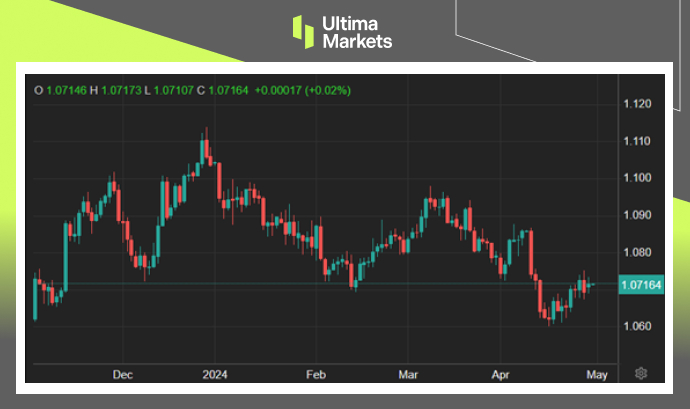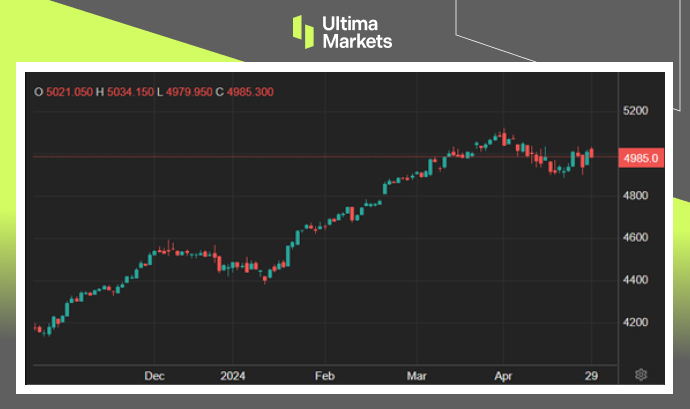
Ultima Markets App
Trade Anytime, Anywhere
Important Information
This website is managed by Ultima Markets’ international entities, and it’s important to emphasise that they are not subject to regulation by the FCA in the UK. Therefore, you must understand that you will not have the FCA’s protection when investing through this website – for example:
- You will not be guaranteed Negative Balance Protection
- You will not be protected by FCA’s leverage restrictions
- You will not have the right to settle disputes via the Financial Ombudsman Service (FOS)
- You will not be protected by Financial Services Compensation Scheme (FSCS)
- Any monies deposited will not be afforded the protection required under the FCA Client Assets Sourcebook. The level of protection for your funds will be determined by the regulations of the relevant local regulator.
Note: Ultima Markets is currently developing a dedicated website for UK clients and expects to onboard UK clients under FCA regulations in 2026.
If you would like to proceed and visit this website, you acknowledge and confirm the following:
- 1.The website is owned by Ultima Markets’ international entities and not by Ultima Markets UK Ltd, which is regulated by the FCA.
- 2.Ultima Markets Limited, or any of the Ultima Markets international entities, are neither based in the UK nor licensed by the FCA.
- 3.You are accessing the website at your own initiative and have not been solicited by Ultima Markets Limited in any way.
- 4.Investing through this website does not grant you the protections provided by the FCA.
- 5.Should you choose to invest through this website or with any of the international Ultima Markets entities, you will be subject to the rules and regulations of the relevant international regulatory authorities, not the FCA.
Ultima Markets wants to make it clear that we are duly licensed and authorised to offer the services and financial derivative products listed on our website. Individuals accessing this website and registering a trading account do so entirely of their own volition and without prior solicitation.
By confirming your decision to proceed with entering the website, you hereby affirm that this decision was solely initiated by you, and no solicitation has been made by any Ultima Markets entity.
I confirm my intention to proceed and enter this website Please direct me to the website operated by Ultima Markets , regulated by the FCA in the United Kingdom
Markets Eye Eurozone Inflation Data, Anticipate ECB Rate Cut in Summer
The euro strengthened above $1.07 as investors awaited the overall Eurozone inflation figures for Tuesday. These figures could provide further clues about the European Central Bank’s policy direction. In Germany, the largest European economy, the national consumer price index (CPI) remained unchanged at 2.2% in April, slightly below the forecast of 2.3%. However, the EU-harmonized reading edged up to 2.4%, surpassing March’s near three-year low of 2.3%. Spain’s inflation rate also increased to 3.3%, driven by rising food and gas prices. Meanwhile, the core inflation rates in both Germany and Spain slowed to fresh multi-year lows, primarily due to decelerating services inflation.
The ECB has clearly signaled its intention to start lowering borrowing costs in June, amid gradually diminishing price pressures and indications of weakening economic activity. On the other hand, the Federal Reserve in the US is unlikely to implement any reductions in borrowing costs before September.

(EURUSD Six-month Chart)
On Monday, the Stoxx 50 index surrendered its initial gains, dipping by 0.5% to settle at 4,983 in the wake of market reaction to fresh inflation reports and company financial results. Notable losses in the index’s significant sectors contributed to the downturn. The luxury brand leaders LVMH and Hermes experienced a 2% decline each, exerting a substantial drag on the Eurozone’s premier index, whereas Inditex saw a 1.7% drop. In the technology segment, both ASML and SAP witnessed declines exceeding 1%. In other developments, BBVA’s shares edged down by 0.8% even though the bank announced a notable 19% surge in net income. Meanwhile, Deutsche Bank shares plunged 8% amid revelations that an ongoing legal dispute might inflict a financial blow of up to €1.3 billion on the bank.

(Stoxx 50 Index Six-month Chart)
Disclaimer
Comments, news, research, analysis, price, and all information contained in the article only serve as general information for readers and do not suggest any advice. Ultima Markets has taken reasonable measures to provide up-to-date information, but cannot guarantee accuracy, and may modify without notice. Ultima Markets will not be responsible for any loss incurred due to the application of the information provided.
Why Trade Metals & Commodities with Ultima Markets?
Ultima Markets provides the foremost competitive cost and exchange environment for prevalent commodities worldwide.
Start TradingMonitoring the market on the go
Markets are susceptible to changes in supply and demand
Attractive to investors only interested in price speculation
Deep and diverse liquidity with no hidden fees
No dealing desk and no requotes
Fast execution via Equinix NY4 server









